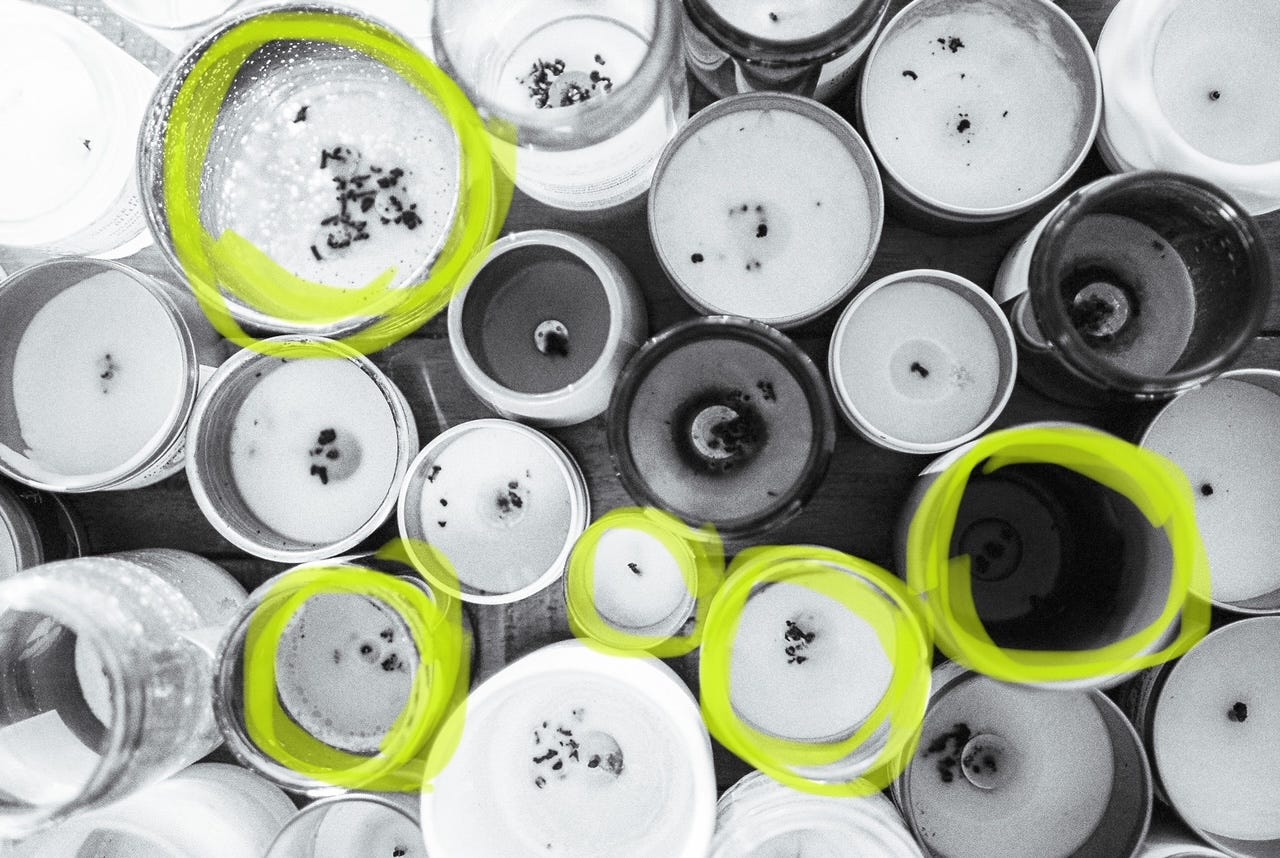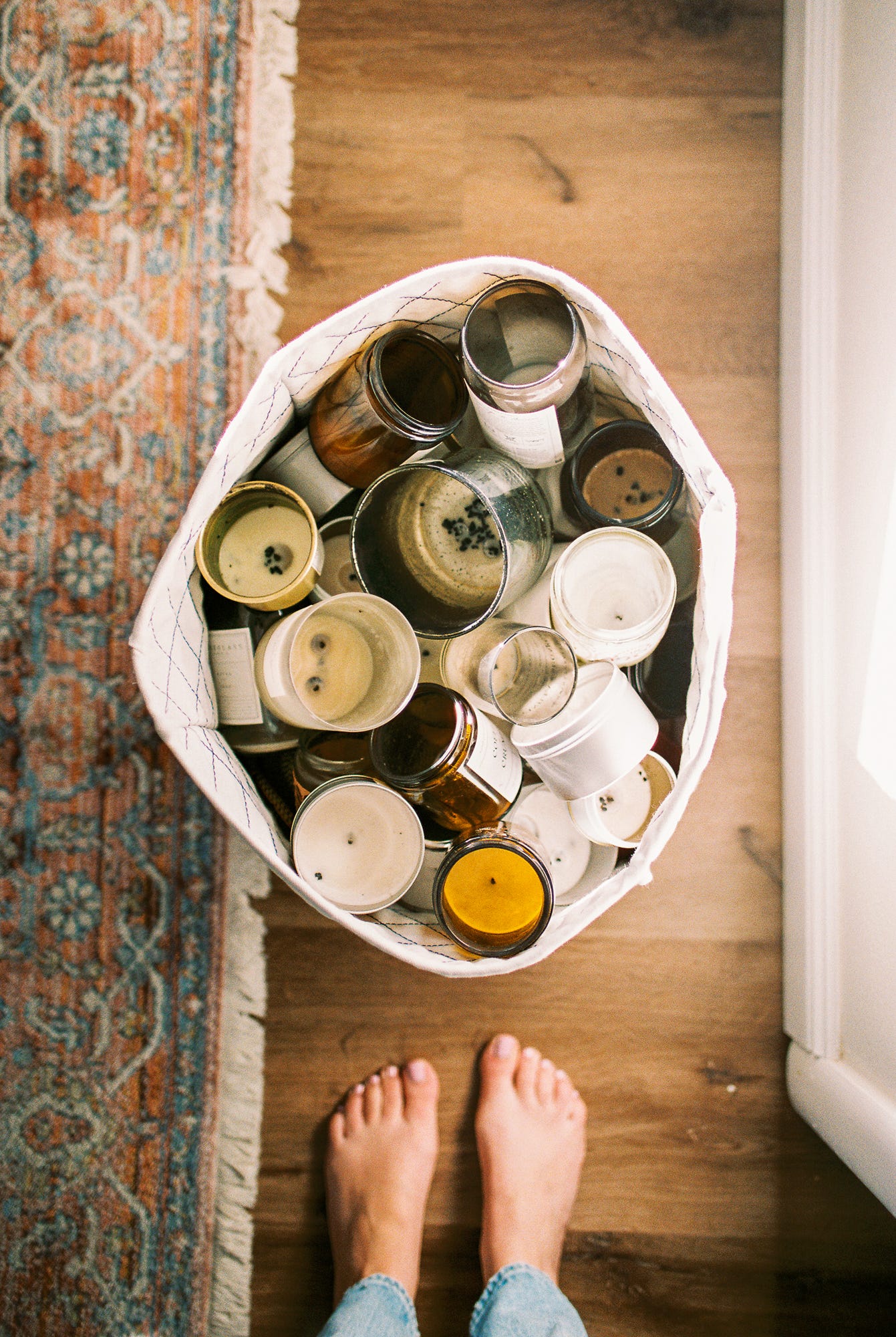Finding Your Defiance and Creating Anyway
A studio conversation with writer Ashlee Gadd
You know those titles that have you at hello? Ashlee Gadd’s Create Anyway is that for me, about “The Joy of Pursuing Creativity in the Margins of Motherhood,” though regardless of parenthood status, she has plenty of wisdom for writers in the thick of resistance.
Ashlee is a writer, photographer, and the founder of Coffee + Crumbs—an online community where motherhood and storytelling intersect. She and her husband have three kids and live in Northern California. You can learn more at ashleegadd.com or subscribe to her newsletter The Second Act here.
Something I love about Ashlee—and this book—is that in a world that loves its tidy binaries, she refuses to let our personal or family life and our creative expression be an either/or ultimatum. Yes, it will be quite untidy, and yes, it will stretch you and you will be pressed to make some difficult trade-offs, but the voice that longs to have its say will find a way, and we all deserve that.
I’m so glad to be in conversation with her today about the subversive spirit of creating anyway, and recommend reading her new book for yourself!
Stephanie: I just love the defiance of your title! What does the “anyway” mean to you?
Ashlee: I hadn’t really considered the title to be defiant, but now that you say that, I suppose a tiny spark of rebellion can light quite a fire in us, can’t it? I mostly mean anyway as “in spite of”—a call to create regardless of excuses, stumbling blocks, and distractions.
My personal resistance tends to show up in all the typical forms: fear, doubt, insecurity, distractions, imposter syndrome, perfectionism, comparison, notions of scarcity, etc. (Being an artist is such a delight!)
What I love about the phrase “create anyway” is that you can attach it to every single one of those obstacles. When you’re scared, create anyway. When it seems like everyone around you is creating bigger, better, more dazzling things than you will ever make, create anyway. When the baby refuses to nap and the house is a mess and the dishes are multiplying, create anyway!
You write, “This is one of my greatest stumbling blocks: Writing badly is the gateway to writing at all, but I want to write perfectly on the first try.” This is both very honest and widely relatable. Can you tell us what your process has looked like in breaking through this creative block of perfectionist standards?
Julia Cameron’s advice to write three pages of stream of consciousness thoughts first thing in the morning has helped me more than anything. I always have to remind myself when writing a first draft: this is the worst it’s ever going to be. These words can only get better from here. I love to edit and revise, but getting that first draft on a blank page is always the hardest part for me. The words never, ever translate on the page quite as beautifully as they appear in my head. Forcing myself through that moment of reckoning is the only way forward.
On a deeper, more spiritual note, I’ve also been trying to embrace what writer Bob Sorge calls “radical obedience.” He writes in Secrets of the Secret Place, “Radical obedience does not seek to comply to the minimal standards but pursues extravagant, lavish fulfillment.”
Sometimes it seems like the only cure for perfectionism is to embrace the idea of “good enough,” but—this might be my Enneagram Type 3 showing!—I don’t want to create “good enough” art. If making art is part of my calling as an image bearer of the utmost creative God, I want to give my creative work my very best effort. I’m finding radical obedience to be a beautiful heart posture, and a real sweet spot between “perfect” and “good enough”: pursuing extravagant, lavish fulfillment of the work God has called me to.
I love the story and visual you provide with your collection of empty candle jars, each representing the hours of writing time you spent on this book. Such a powerful image! And you introduce it in a chapter called, “Nothing is wasted.” We tend to fixate on the final “product,” but what would you say are the gifts of the process itself, which may or may not ever be seen by anyone but us?
The process is where the actual magic happens, because the process is where we grow the most. All of those unseen hours are where we learn grit and courage, discipline and commitment. The process is where the training wheels come off, where we learn how to fall down and get back up.
I remember feeling a strange sense of grief when I turned in my final manuscript edits, which surprised me. I expected to feel relief, and I did, certainly, but I also felt an acute sense of sadness that the writing part was over. It’s like Anne Lamott says in Bird by Bird, “… publication is not all that it is cracked up to be. But writing is.”
Seeing Create Anyway sitting on bookshelves and being held in the hands of so many women is thrilling and wonderful, absolutely. A profound privilege and gift, no doubt. But the act of actually writing the book—sitting at my desk at 5am next to a burning candle, writing in my car parked in the driveway during Covid, scribbling notes down on index cards every time an idea flew into my head, changing words and adding commas and trying to make each sentence sing—all of that was the very best part.
You are a parent of three running an online magazine on top of creative projects of your own. What are some of the ways you have made space for your creative work in the midst of a full life? What practical ideas would you recommend for writers craving space in their own full lives?
Practically, I am a big fan of early mornings, mostly because I like to write before the world gets a chance to get in my head. But I know that’s not possible for everyone, so my broader tip would be: find a time that works for you, be consistent, and go where the energy is. I begin my writing time with whatever piece I currently feel the most passion for. I find that’s a good way to get momentum.
My second tip would be to delete social media. I know this flies in the face of platform building, which many writers are trying to do. But nothing has given me more space (physically, mentally, emotionally, spiritually) than deleting social media on a regular basis. You’ll be amazed at how much time you can “find” when you simply take a few apps off your phone, and log out.
What surprised you most in writing this book?
What surprised me most was God’s constant provision. I can’t even begin to tell you how many times I thought, “I cannot write this book.” I didn’t have the childcare, I didn’t have the energy, I didn’t have the time, the space, the quiet, the skills, the ideas. There were dozens of times where I remember just staring at the wall, staring at the sky, wondering what I had gotten myself into.
And yet—God delivered manna on the front lawn every morning. A pocket of time. A sliver of space. A fresh idea where there had only been a gaping hole. A breadcrumb, a ladybug, a word, a memory, whatever I needed would seemingly appear out of thin air. It was the stuff of miracles, the stuff only God can do. I truly felt a divine hand on every step of the process, in the most surprising ways. I will never forget it.
And yet! Two words that fire me up. Here’s to burning the candles and believing nothing is wasted, immersing into the best part of writing, and creating anyway. Thank you, Ashlee, for joining us, and if this interview speaks to you, you can get your copy of Ashlee’s new book here.






Gosh, I love all of this. I laughed and also wanted to cry at this part, "(Being an artist is such a delight!)" Whenever I try and explain to my husband how writing can make me feel so bad, and he doesn't understand and asks why I keep doing it. But it feels like I can't not, you know? But it does sometimes feel like "not a delight." Thanks for the encouragement, Ashlee & Stephanie!
I’ve missed your words Stephanie! I hope you’ll have something to share soon! ❤️